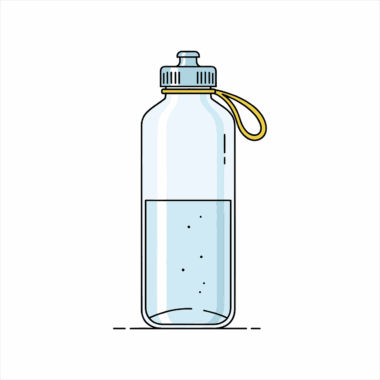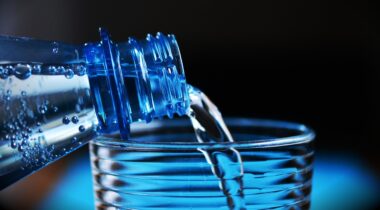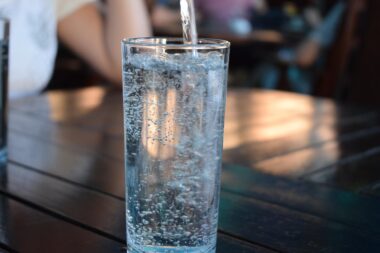Common Myths About Drinking Water
Hydration is crucial for maintaining health, but many misconceptions exist surrounding water intake. One common myth is that everyone must drink eight glasses of water daily. While hydration needs vary, factors like age, activity level, and climate significantly impact water requirements. For example, athletes may need more hydration than sedentary individuals. Additionally, consuming water through food can contribute significantly to total intake. Fruits and vegetables contain water; hence, those who eat a balanced diet may meet their hydration needs without focusing solely on drinking water. Another myth is believing any beverage counts as hydration. Beverages like caffeinated drinks may lead to dehydration, while pure water is the gold standard for hydration. It is essential to listen to your body; thirst can guide your water intake. In some cases, not drinking enough water can lead to health issues such as poor digestion and fatigue. Understanding hydration’s importance and debunking myths can empower you to make better choices for your health and well-being. Furthermore, consulting with a healthcare professional can provide personalized insights into your hydration needs, especially if experiencing unusual symptoms.
Another prevalent myth about drinking water is linked to its temperature. Many believe that cold water aids in weight loss by burning calories during digestion. However, the body does not expend significant energy warming up cold water, meaning this belief lacks scientific backing. Instead, drinking cold water can be refreshing, especially after a workout, but its weight loss effects remain negligible. Likewise, another misconception is the idea that drinking excessive amounts of water can flush out toxins. While adequate hydration supports kidney function and toxin elimination, overhydration poses risks like hyponatremia, diluting blood sodium levels and leading to severe complications. Moderation is key, and it’s essential to balance water intake with the body’s natural processes. People often rely on water alone to lose weight, overlooking other vital factors, such as proper diet and physical activity. Therefore, it’s crucial to adopt a holistic approach to weight management, incorporating healthy eating and regular exercise into your routine. Additionally, understanding personal hydration needs helps maintain sustained energy levels and overall health. Emphasizing quality over quantity ensures the body receives the right nutrients and hydration.
The Role of Thirst
A significant myth surrounding hydration is the reliance solely on thirst to gauge fluid intake. While thirst can be a useful indicator, it isn’t always a reliable sign that the body requires more water. Many people, especially older adults, may not feel thirsty until dehydration has already begun, leading to inadequate water intake and potential health issues. Keeping track of daily water consumption encourages individuals to drink water regularly, even if they’re not feeling thirsty. Furthermore, environmental factors like heat and exercise level can significantly affect hydration requirements. In hot weather or during intense physical activities, your body loses fluids quickly. It’s essential to drink water consistently to replenish lost fluids and maintain proper hydration levels. Educating oneself about the signs of dehydration can also be highly beneficial. Symptoms like dark urine, dry mouth, and fatigue often suggest that your body requires more water. Keeping a refillable water bottle handy can serve as a constant reminder to stay hydrated. In conclusion, by staying proactive about hydration, you can help improve your overall health and wellness while dispelling common myths surrounding water intake.
It is also a common belief that drinking water while eating is detrimental to digestion. This myth claims that water dilutes stomach acids, slowing digestion. However, scientific evidence is lacking to support this notion. In fact, drinking water during meals can aid in breaking down food, making it easier for the body to absorb nutrients. Moderation is essential, and drinking water in reasonable amounts while eating shouldn’t pose any adverse effects. While some individuals may prefer to drink water before or after meals, others find that sipping during meals is beneficial. Another misconception is about sports drinks being superior to water for hydration. While these beverages may replenish electrolytes lost during intense workouts, they often contain high sugar levels and calories, making them unnecessary for casual exercise. Water remains the best choice for hydration for most people; sports drinks should be reserved for athletes who require quicker electrolyte replenishment. Choosing water over sugary drinks can also lower calorie intake and benefit overall health. Embracing this simple, effective habit can promote weight management and improved wellness.
Hydration for Different Age Groups
Myths around hydration extend into the belief that all age groups have the same water needs. However, hydration requirements shift as people age. For instance, infants require substantial amounts of fluids relative to their body weight, while older adults may experience a decreased sense of thirst, leading to potential dehydration. Understanding unique hydration needs across ages is crucial for maintaining health. As children are often active, they may require additional water intake, particularly during physical activities and in hot weather. On the other hand, older adults should prioritize consistent hydration to counteract factors like decreased thirst and medications that may contribute to dehydration. Additionally, specific health conditions can affect hydration needs. Health issues like diabetes or renal-related problems may require tailored fluid intake plans. Individuals experiencing these conditions should consult healthcare professionals for personalized hydration strategies. Also, the importance of teaching children about proper hydration cannot be overstated. Educating young ones on recognizing thirst and making water a staple of their daily routine can instill healthy habits that last into adulthood. Encouraging family conversations about hydration fosters awareness and promotes overall well-being.
Understanding the importance of hydration goes hand in hand with debunking common myths. One prevalent myth suggests that clear urine indicates optimal hydration while dark urine signifies dehydration. Although urine color is somewhat indicative of hydration levels, factors such as diet, medications, and supplements can also influence it. For example, certain foods like beets or medications can give urine a temporary hue that’s not related to hydration. Instead of strictly relying on urine color, it’s more beneficial to pay attention to overall body signals and feelings. Additionally, many people mistakenly believe that they can exclusively meet their hydration needs by drinking only water. While water is vital, other fluids and high-water-content foods like fruits and vegetables also contribute to hydration. Including a variety of beverages, such as herbal teas or diluted juices, helps diversify hydration sources. It’s essential to recognize that caffeine doesn’t significantly dehydrate most individuals, contrary to popular belief. Moderate coffee or tea consumption can coexist alongside adequate hydration, so enjoy your favorite drinks without guilt. Discovering what works for your body is key in achieving and maintaining good hydration.
Conclusion
In conclusion, debunking myths surrounding water intake is essential for promoting healthy hydration practices. Recognizing that individual hydration needs vary according to multiple factors allows for informed decisions. Redefining misconceptions related to the amount of water required, the influences of temperature, or specific age group needs encourages users to adapt positive habits. It’s crucial to listen to your body’s signals and engage in regular discussions about hydration throughout all family members. Ultimately, understanding the significance of hydration transcends beyond merely drinking water; it involves incorporating a variety of fluids and adopting a holistic approach to health and wellness. Education about hydration leads to improved well-being, energy levels, and even cognitive function in adults and children alike. Consult healthcare professionals when unsure about personalized hydration needs. Explore additional resources to enhance your knowledge of hydration and general health. By fostering awareness and promoting informed practices, we can move toward a healthier lifestyle and debunk these common myths. Healthy, hydrated individuals can face their daily challenges with increased energy and vitality. Embrace water as a vital part of your life and make hydration a priority.





